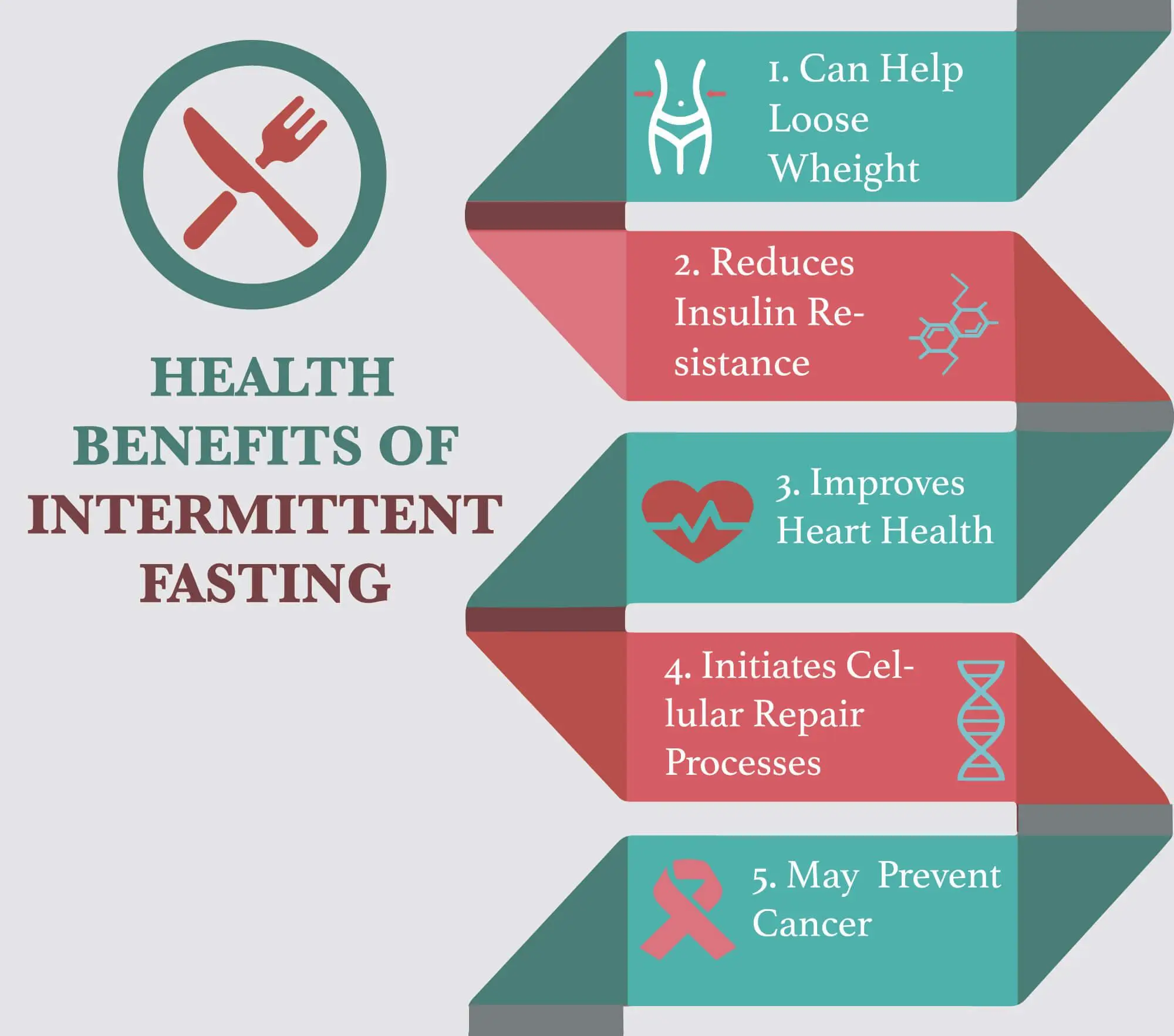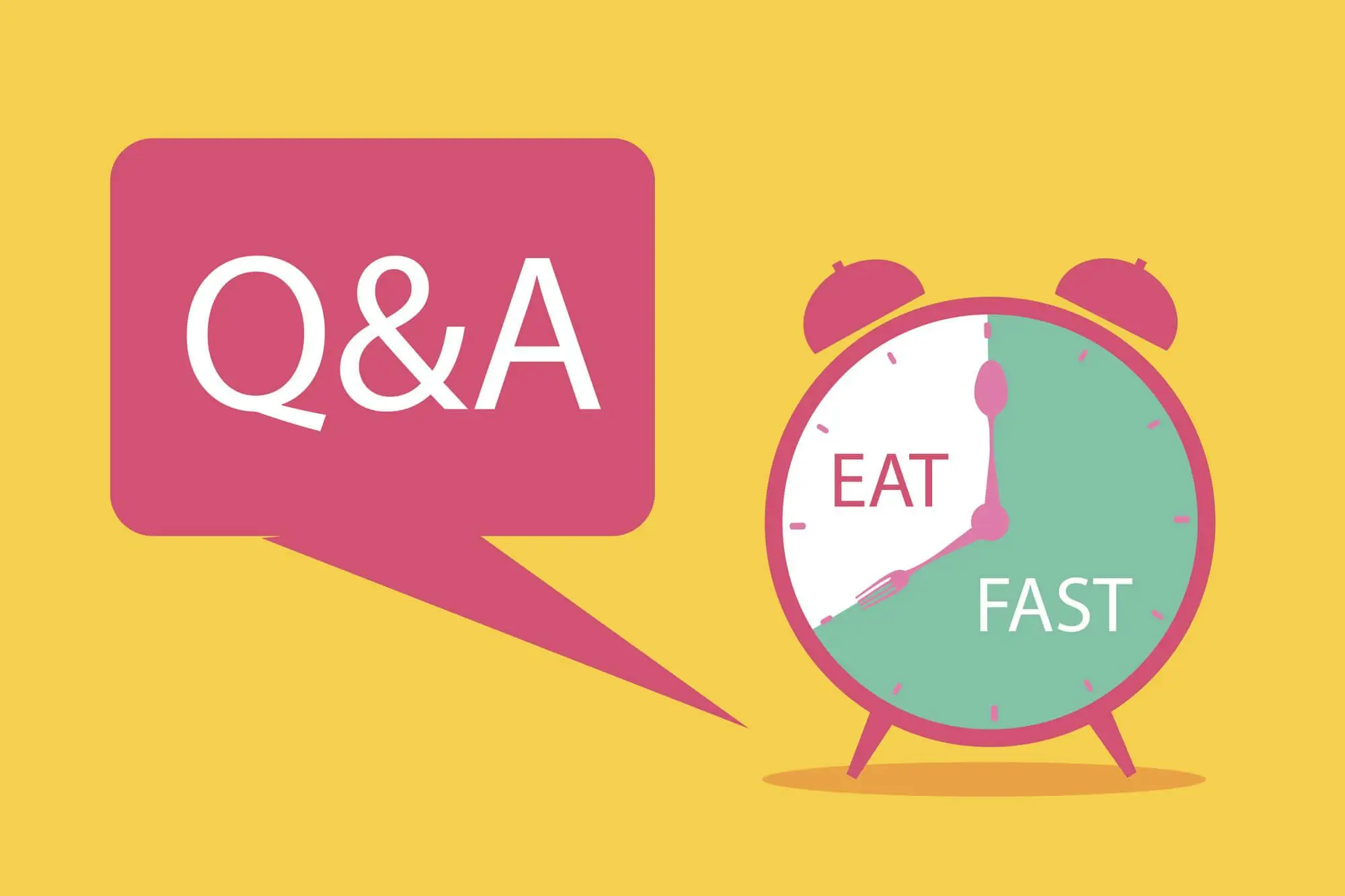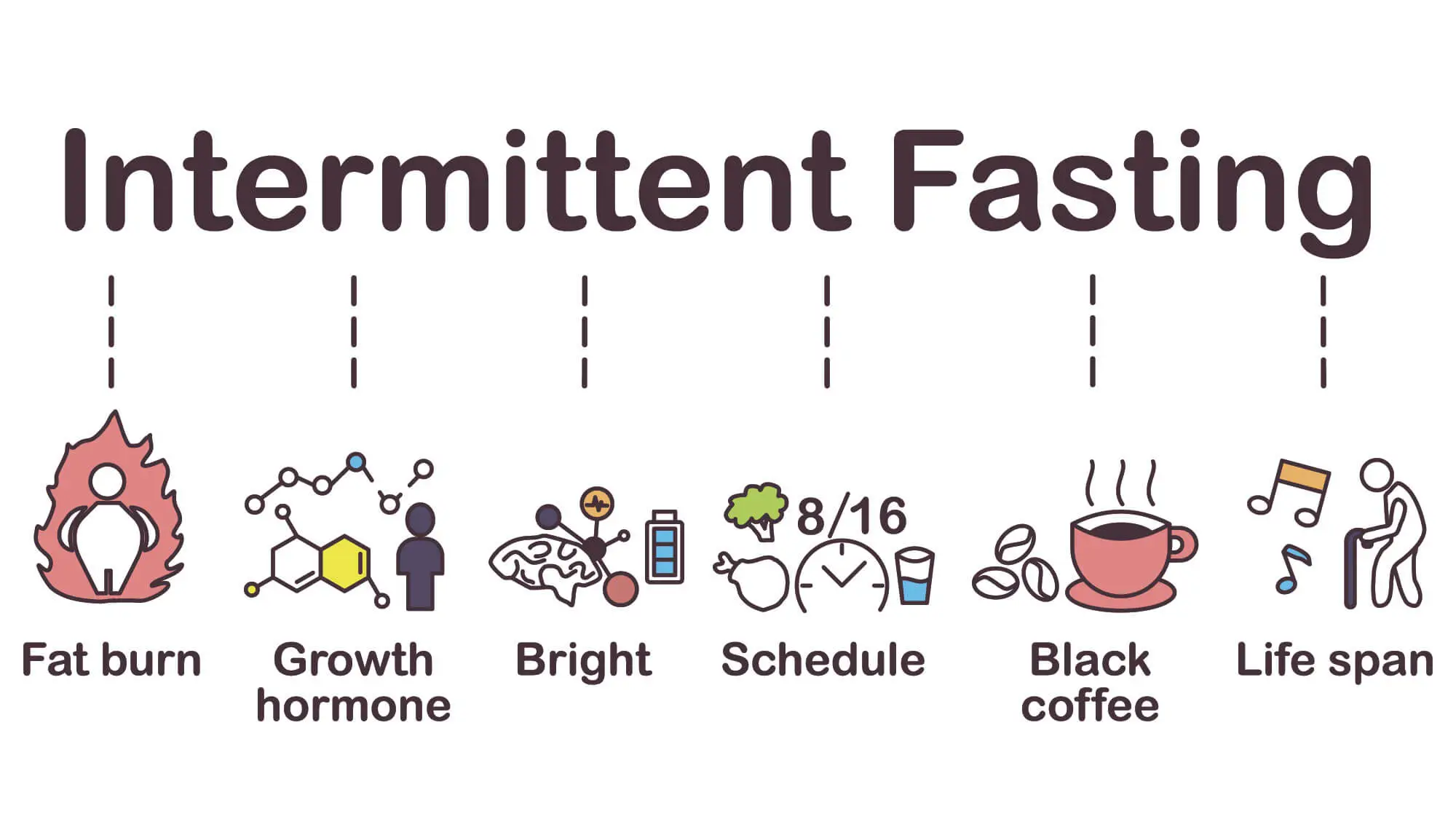A Beginner’s Guide to Intermittent Fasting for Vegans: Methods, Health Benefits, and Advice
You may have heard people throwing around the term “intermittent fasting” (IF) a lot recently. IF put simply is deliberately not eating for extended periods.
“But why would I do this?!” I hear your cry. Studies have shown that it can have some serious health benefits, most notably weight loss, increased fat burning, and improving your mood and focus.
IF has become somewhat of a new trend among health geeks, and now vegans are also getting involved. This article is a beginner’s guide to intermittent fasting for vegans. I’ll walk you through the idea slowly and try to be as informative as possible.
What is Intermittent Fasting?
IF is simply not eating for set periods of time each day. The most common being 16:8, which’s 16 hours fasting (not eating) and 8 hours where you can eat. Most people that do IF do it a couple of times a week or a few times a month.
When your fasting period is over, it does not mean you gorge on tons of food stuffing your face. No, this is a method to improve your health, so during your eating period, you will focus on eating a healthy diet.
While 16:8 is the most popular choice, there are a few other options you can consider.
- 5:2 – eat normally for 5 days a week and eat 500-600 calories for 2 days a week
- 16:8 – no eating for 16 hours eat a healthy diet in the 8-hour window
- Eat-Stop-Eat – don’t eat anything at all for 24 hours 1-2 times a week
- Alternate Day Fasting – every other day, eat just 500 calories and eat normally on other days
5:2
This one is simple, and for some, the easiest IF method. You will eat completely normal for 5 days a week, but it should be a healthy diet. Then on the other two days, which don’t have to be together, you eat around 500-600 calories.
At first, these 500-600 calorie days are going to suck. You will quickly realize that 500 calories are not a lot of food, and you will feel hungry quickly. That’s kind of the point.
You may have also heard about this diet by the name “Fast Diet.” On your fasting days, men must consume 600 calories, and women consume 500 calories. I would recommend breaking your fasting days up. So, you may fast Monday and Thursday.
I chose these two days because they’re the two days you’re least likely to be tempted to go out with friends or family. Most people work hard on Monday and get an early night. Thursday is often the quiet night before the weekend begins. Adapt the days to suit your personal schedule and social life.
On fasting days, women should eat two small meals of 250 calories. Men should eat two small meals of 300 calories.
16:8

This one is also straightforward. You fast for 16 hours, and then you have a window of 8 hours where you can eat. 16 hours sounds like a long time, but remember you’re going to be asleep 6-8 hours of it.
Within the 8 hour window, you can fit 20-3 healthy nutritious meals in. The easiest way to think about 16:8 is to not eat dinner and skip breakfast. I found that after the first couple of times, you don’t even miss breakfast, and your 8-hour window comes around fast.
You can drink during your 16 hour fast. This includes water, coffee, and any other zero calories beverages. I would stick to just 1 cup of coffee. Don’t get addicted to drinking coffee because you’re hungry. Just drink lots of water.
It’s recommended that women fast for 14-15 hours only. This is simply because women get better results with shorter fasts. Unfortunately for men, you have to go the whole 16 hours for the best results from your IF.
Personally, I have had the best results with the 16:8 method. I have shifted some weight, I am sleeping better, I’m more focused at work, and I have found my digestive system has significantly improved. Not to get into too much detail, but I am regular and satisfied.
At first, I found skipping breakfast was difficult. I soon found that drinking lots of water significantly helps with hunger pangs, as well as keeping busy. Working while fasting in the morning makes me more productive and helps keep my mind off food.
I finish eating at 8 pm and start eating again at 12pm the next day. I do this 2-3 times a week and started around 6 months ago. I focus on eating a healthy whole foods vegan diet, and honestly, I have never felt better.
Eat-Stop-Eat
This method is a little more complicated. It requires you to fast for a complete 24 hours once or twice a week. You basically fast from one dinner to the next day’s dinner. So, most likely from 6 pm to 6 pm the next day.
You can also fast from breakfast to breakfast or lunch at lunch. That’s your choice and depends on your personal preference. You’re allowed to drink water, coffee, and other zero-calorie drinks throughout your fast.
This is an excellent method for losing weight, but only if you eat normally on your eating days. Don’t finish your fast at 6 pm and then consume a billion calories because you’re starving. Eat your typical 2000-2500 calorie diet as normal and spread the meals out over the day.
The biggest downside to this method is that most people simply give up because it’s too difficult not to eat 24 hours straight. If you do want to try the Eat-Stop-Eat method, try the 5:2 and 16:8 methods first. Build your way up to a 24 hour fast to give yourself more of a chance to complete it.
Alternate Day Fasting
I like this method and have previously done it multiple times with success. It’s very simple, you just fast every other day by eating no more than 500 calories during the fasting days.
You will find that most studies that show the benefits of IF used this type of method or different versions of it with slightly different calorie intake.
This method can be complicated because it involves a lot more frequent fasting. This means you’re going to spend a lot of your week feeling hungry. This is why most people give up. But, I think there are benefits to sticking this one out.
I found it got way easier after a few weeks, and I felt good doing it. One profound thing you learn from IF is the realization of how much your life revolves around stuffing your face with food. You can learn a lot about your relationship with food by really feeling a deep hunger.
This method taught me a valuable lesson about portion control. We really don’t need to eat as much as we all do. Smaller portions are better, and we don’t need to eat if we don’t feel hungry. Many of us are guilty of eating out of boredom or habit.
The Benefits of Intermittent Fasting for Vegans

Ok, so we know what types of IF methods there are and how to do them. What’s the point in IF? Why would anyone actually go through with starving themselves? Let’s find out.
Weight Loss
This is the most common reason for someone wanting to fast. And it’s fairly obvious if you fast then you will lose weight. It’s inevitable.
As a vegan, it’s important to have some control over your diet during your eating periods. You must ensure you’re eating nutritious meals that give you adequate nutrients. Vegans naturally eat fewer calories than non-vegans, so you must make sure you’re eating enough when you have the chance.
I highly recommend using the Cronometer App to track your eating during your IF.
Boost in Mood and Focus
Many people that IF will tell you that they had a boost in their mood or have become more focused and productive at work. I am also one of those people. I generally feel more positive and more focused as a result of fasting.
At the start of your IF journey, you’re unlikely to reap these benefits. In fact, you may experience the opposite. You will feel hungry, so you will get “hangry” (hungry/angry), and you might not be able to focus because you’re thinking of eating.
You have to stick it out to reap these benefits. Over time, your mood will likely improve, and you will find yourself more focused at work or on other activities.
It’s thought the boost in mood and focus is because IF boosts the brain-derived neurotrophic factor (BDNF). This is a vital protein that improves learning, memory, and the creation of new nerve cells in the hippocampus. It also helps your neurons become more resistant to stress.
Changes the Function Cells, Genes, and Hormones
Fasting makes your body do some pretty incredible things. When it’s expending so much energy on digesting, your body starts to focus more on other functions.
- Insulin levels drop significantly, which helps you to burn fat.
- Blood levels of growth hormone can increase by 5 times. This helps burn fat and increase muscle mass.
- Important cellular repair processes are activated and start to remove waste material from cells. Some people may call this detoxing.
- Several genes and molecules related to longevity and protection against disease are benefited from fasting.
Increases Energy and Boost Endurance
There is a reason that many athletes regularly take part in IF. It boosts mitochondrial biogenesis so that your cells can create more mitochondria.
To put this simply, mitochondria give your body cells more energy. As you’re a person made up of cells, you then have more energy.
The more energy you have, the more likely you’re to perform at a higher level.
How To Start Intermittent Fasting on a Vegan Diet
Intermittent fasting as a vegan is not much different than if you were non-vegan. You still have access to all the same great benefits, but you may want to follow the advice below.
Start Gradually
Please don’t be one of these people that makes a YouTube video titled “Why I’m No Longer Vegan” because you decided to stop eating for 3 weeks straight and drank only wheatgrass shots.
Start your IF journey gradually. Take on the 5:2 or 16:8 methods first. Just try it out. You don’t even have to follow it precisely at the start, just get used to not eating for set periods of time. It gets easier every single time.
Make It Easy
We all live very different lives and run on different schedules. Make your IF work for you by creating a plan that factors in your daily schedule, including work hours, responsibilities, errands, gym time, and so on.
16:8 is by far the easiest method to stick to if you have a busy life. In fact, you’ll save time skipping breakfast, which might improve your work and productivity.
Reflect
You should never continue any diet if you’re not reaping the benefits. Set a reminder on your phone and reflect on whether it is working for you. If your aim is to lose weight, measure your waist, and weigh yourself at the start of your IF journey.
Having a journal helps you note down how you’re feeling and what changes you have noticed. Don’t be afraid to acknowledge any downsides.
Create a Meal Plan
When you break your fast, it can be tempting to start gorging on bad foods in large quantities. Having a meal plan that works around your schedule will help you control what you’re eating and ensure you’re getting the right foods.
Remember, you should be eating healthy during your eating windows.
Frequently Asked Questions

Can Anyone Try Intermittent Fasting?
IF is not recommended for women who are pregnant or breastfeeding.
Diabetics should also avoid IF. Yes, there are benefits such as reducing blood sugar levels and insulin resistance. So, it might seem like a good idea to use IF in managing your diabetes. But currently, experts advise against IF for diabetics because they believe it can negatively disturb blood sugar levels.
The American Diabetes Association currently doesn’t recommend fasting as a technique for diabetes management. They say lifestyle changes, including “medical nutrition therapy and more physical activity,” are far more useful for proper diabetes control.
What Do I Eat When Intermittent Fasting?
You can basically eat whatever you want, but you should focus on a healthy whole foods plant-based diet for the best results. I would recommend tracking your nutrition, to begin with. This will help you to make sure you’re getting adequate nutrition within your eating windows.
One of the most common issues with vegans doing IF is a loss of energy or extreme loss of weight. You must ensure you’re eating enough calories when not fasting. You want to lose weight healthily and gradually in a safe way for your body and mind.
What Are the Downsides of Intermittent Fasting?
Like with everything, there are downsides to intermittent fasting, but they can be easily avoided and overcome.
- Getting “Hangry” – getting a bit frustrated and angry because you can’t eat.
- Binging – the temptation to binge after fasting is strong. You must resist!
- Disrupts Social/Work-Life – spontaneous work lunches and dinner with friends will become a big no-no.
- Similar Results to Calorie Restriction? – some say that a basic diet with calorie restriction can have the same results. But, most of us cannot stick with long-term low-calorie diets long enough to see the results.
- It’s Difficult – IF isn’t easy, it can take its toll both physically and mentally.
Final Thoughts
I think IF is a great way to lose weight and regain some control over your excessive eating habits. It teaches you about self-discipline, portion control, and allows you to relinquish some of the power that food has over our lives.
If you want to lose weight fast as a vegan, an IF diet may be beneficial. It’s not a long-term solution, but it will undoubtedly help you to reach short-term goals. Give it a go using the advice above and let me know how it goes.




Spelling error report
The following text will be sent to our editors: